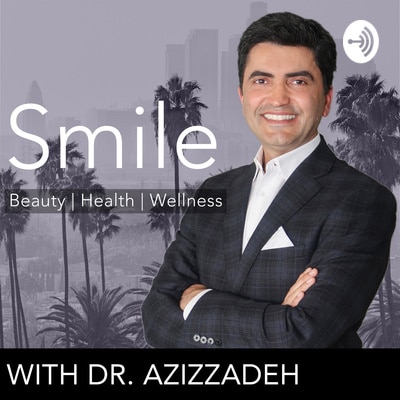In episode four of the SMILE podcast, Harvard-trained and dual board-certified facial plastic and reconstructive surgeon Dr. Babak Azizzadeh and Dr. Neda Shamie, a renowned cataract, LASIK, and corneal surgeon, discuss the impact of the coronavirus (COVID-19) on the eyes. Dr. Shamie shared her thoughts on COVID-19 and how to protect the eyes against the coronavirus.
What Is the Link Between COVID-19 and the Eyes?
COVID-19 spreads via small respiratory droplets in the air, and these droplets are transmitted via sneezing and coughing. If a person infected with COVID-19 sneezes or coughs without covering their mouth, these droplets could reach people who are within close proximity, resulting in COVID-19 infections.
Social distancing and wearing a mask are encouraged to help prevent the spread of COVID-19. Since COVID-19 can spread if people come into close contact with those infected by the coronavirus, maintaining a minimum of 6 ft. from these individuals may help slow its spread. Meanwhile, wearing a face mask can help people minimize the risk of inhaling droplets that contain COVID-19.
The eyes may provide an entry point for COVID-19 to spread, too. If people come into contact with a surface that contains COVID-19 then touch the eyes, they could become infected by the coronavirus.
Tips to Prevent the Spread of COVID-19 Through the Eyes
Frequently washing the hands with soap and water is vital. People may come into contact with various surfaces that could contain COVID-19, but consistent hand-washing helps ensure that the coronavirus cannot be spread through the eyes, mouth, or other areas of the face.
Along with frequent hand-washing, people should regularly sanitize surfaces across their homes and offices. Disinfecting surfaces can destroy viruses, germs, and bacteria.
People should watch for symptoms of a COVID-19 infection as well. Conjunctivitis, aka pink eye, has been linked to COVID-19. At the first sign of COVID-19 symptoms, people should get tested. If they are diagnosed with COVID-19, these individuals should self-quarantine and notify anyone who recently came into close contact with them.
For people who experience vision problems or other eye issues during the coronavirus pandemic, help is available. Ophthalmologists may provide virtual consultations, so patients can discuss their eye concerns and questions without having to travel to a doctor’s office. Furthermore, virtual consultations are secure and confidential, and patients may use them to get immediate medical support.
There may be times when emergency treatment is required for an eye issue during the pandemic. Ophthalmologists follow protocols and procedures from public health agencies and do their part to sanitize their practices. If an emergency appointment is needed, contact an ophthalmologist directly. This allows patients to find out how they can prepare for the appointment.
What Eye Treatments Are Available to Patients During the Coronavirus Pandemic?
Cataract surgery, LASIK, and other eye procedures are still being performed during the coronavirus pandemic. Ophthalmologists work closely with patients to safely administer these treatments and ensure patients can achieve their desired results.
Additionally, eyelid lifts and other cosmetic procedures are available. These procedures help patients address sagging upper eyelids that can interfere with their vision and similar problems.
Learn More About Eye Care During the Coronavirus Pandemic
Listen to episode four of the SMILE podcast to learn more about eye care options available during the coronavirus pandemic.
